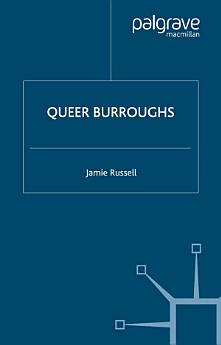Queer Burroughs
J. Russell
ก.ค. 2001 · Springer
eBook
256
หน้า
reportคะแนนและรีวิวไม่ได้รับการตรวจสอบยืนยัน ดูข้อมูลเพิ่มเติม
เกี่ยวกับ eBook เล่มนี้
William S. Burroughs is consistently thought of as a novelist who is gay, rather than a gay novelist. This distinction is slight, yet remarkable, since it has meant that Burroughs has been excluded from the gay canon and from the scope of queer theory. In this intelligent book, Jamie Russell offers the first queer reading of Burrough's novels. He explores how the novels of Burroughs can be seen as a sustained attempt to offer a very personal rethinking of gay subjectivity, and as an attempt to overturn stereotypes of gay men as effeminate. Yet in his celebration and appropriation of some of the most violent, misogynistic, and effeminaphobic elements of heterosexually-identified masculinity, Burroughs's life and writing suggests a subjectivity which has been deeply troubling to many in the gay community.
เกี่ยวกับผู้แต่ง
JAMIE RUSSELL is a lecturer in English and a freelance journalist. He lives in London.
ให้คะแนน eBook นี้
แสดงความเห็นของคุณให้เรารับรู้
ข้อมูลในการอ่าน
สมาร์ทโฟนและแท็บเล็ต
ติดตั้งแอป Google Play Books สำหรับ Android และ iPad/iPhone แอปจะซิงค์โดยอัตโนมัติกับบัญชีของคุณ และช่วยให้คุณอ่านแบบออนไลน์หรือออฟไลน์ได้ทุกที่
แล็ปท็อปและคอมพิวเตอร์
คุณฟังหนังสือเสียงที่ซื้อจาก Google Play โดยใช้เว็บเบราว์เซอร์ในคอมพิวเตอร์ได้
eReader และอุปกรณ์อื่นๆ
หากต้องการอ่านบนอุปกรณ์ e-ink เช่น Kobo eReader คุณจะต้องดาวน์โหลดและโอนไฟล์ไปยังอุปกรณ์ของคุณ โปรดทำตามวิธีการอย่างละเอียดในศูนย์ช่วยเหลือเพื่อโอนไฟล์ไปยัง eReader ที่รองรับ





